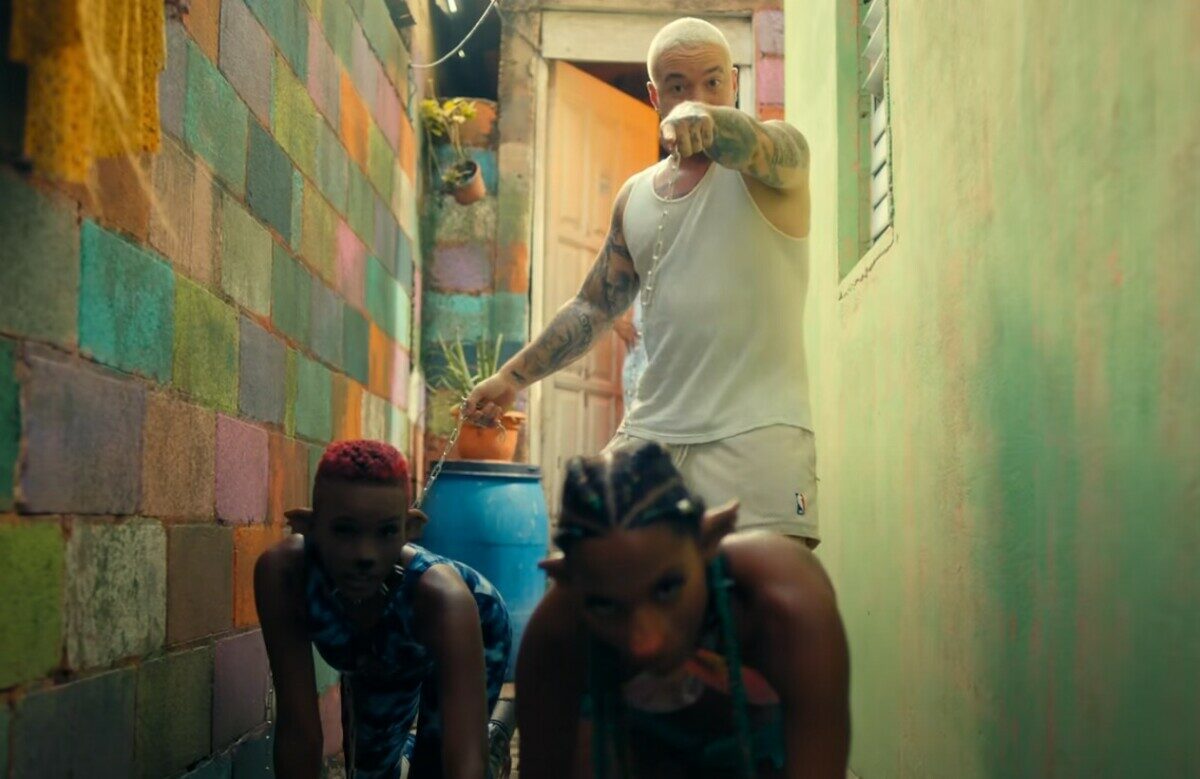Controversial video clip "Perra" by JBalvin removed from YouTube
The controversial Colombian bring bacl sexism's issue in reggaeton back in the public debate

The song "Perra" by the Colombian singer JBalvin, which caused a great controversy in public opinion, continues to give us something to talk about, since it was recently removed from the YouTube platform
In the midst of the current struggles that feminist groups are carrying out, Balvin together with the Dominican rapper Tokischa, launched his song with a video clip in which the singer can be seen "walking" two women with straps around their necks, as if they were of two bitches.
Until now, the official reason why the video was removed from the platform is unknown, however, it is known that the singer also disappeared the content related to the controversial song, leading to presume that it was the same JBalvin decided to delete it.
Sources have indicated that the decision of the interpreter of In Da Getto is very likely due to the statements of the Colombian vice president Martha Lucía Ramírez, who described the issue as "macho, sexist and misogynistic."
«He uses images of women and people of African descent, population groups with special constitutional protection, whom he presents with dog ears. In addition, while walking, the singer carries two Afro-descendant women tied with neck chains and crawling on the floor like animals or slaves" said the vice president in a statement talking about J Balvin.
Ramírez, in the document, publicly invited J. Balvin and the music and record industry to sing a pact that includes the promotion of women's rights, and not the pervention and violence against it.
The vice president of Colombia has not been the only one who has raised her voice against the reggaeton, so did the Colombian-French writer Florence Thomas, who told Semana magazine that she saw the video with "great difficulty", and asserted that the lyrics of the subject does not speak of the female of the dog, but of "bitches, whores, bitches."
"It is not just a macho thing, it is much more than that; for me that guy deserves jail, for all the fibers of what we have fought for years, decades, women, and not just feminists, to have a minimum of dignity and respect. Jail for JBalvin! ", sentenced Thomas.
The same did the congresswoman of the Green Party, Katherine Miranda, who considered that it is necessary for the authorities to take action to defend the rights of women, and asked the singer to present public excuses.
In defense of J. Balvin
But everything has not been critical of the interpreter, some voices have been heard in his defense, and many of the accusations have been classified as "double standards".
Such has been the case of the professor and doctor in Feminist Jurisprudence at Harvard, Isabel Cristina Jaramillo, who has disqualified the opinion of Martha Ramirez, and alleges that women are "sexual beings", who are not offended by these letters,
On the other hand, there is the journalist Nuria Net, co-founder of La Coctelera Music, this affirms that the song is not "macho at all", and the theme is from a man to a woman, who express their desire.
He also added that removing it from YouTube doesn't solve anything.
"Bitch" puts reggaeton in her sights
According to the ABC.es web portal, the controversy over the "Bitch" issue has once again put the issue of machismo in reggaeton in the public debate.
Those who defend the genre, argue that this type of topics and videos allude to freedom of expression in art, and affirm that the lyrics of the songs should not be understood as extensions of the author's private life, nor as allegations, refers ABC.
In addition, it is worth noting that the women who participated in the musical production, acting as "animals", are Afro-descendant women, who decided to act by their own decision.
Similarly, the singer Tokischa, with whom Balvin interprets the controversial theme, is known for being a defender of LGTBI rights and women within the Latin urban scene.
Opposition to this musical genre
Those who oppose reggaeton assert that both the lyrics and the images apologize for direct violence against women, who are described as mere bodies without value, interchangeable and absolutely available at the service of the unlimited sexual desire of their authors.
Sílvia Martínez, professor at the Escola Superior de Música (Esmuc) and the UAB, said in an interview, in which she was consulted about reggaeton and trap, that these songs are not the only ones that have a sexist language, and asserts that many other compositions have this type of language, but for different reasons they may have gone more unnoticed.
She, as an example, gives the case of the song Blurred lines, performed by Robin Thicke a few years ago at the Super Bowl and whose lyrics have nothing to envy those of Maluma, for example.
He also said that during his classes at the university, he has analyzed with his young students the video clip "four babys", this has allowed him to conclude that banning these songs would have an even more amplifying effect.
He adds that according to his analysis, young people, he says, "are not idiots and do not share these values and neither do those who dance reggaeton."
However, it states that it is important to take into account that music is a source of acculturation, within a society that emits sexist messages from childhood.
